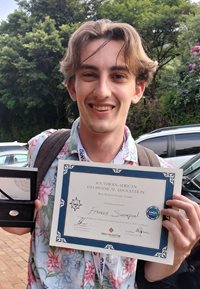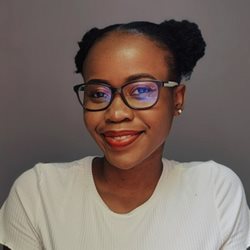Gqeberha art masters to share lifetime of experience
Legendary artists Lizo Pemba and Dolla Sapeta have teamed up to share the craft of their art as part of the South African Cultural Observatory (SACO) capacity building workshop series.
SACO is a project of the South African Department of Sports, Arts and Culture, hosted by the Nelson Mandela University in partnership with Rhodes, KwaZulu-Natal and Fort Hare Universities.
New Brighton is a cauldron of creativity and resistance that continues to incubate artists and academics alike. Creative stalwarts, Lizo Pemba and Mxolisi Dolla Sapeta are case in point.
This week the duo – among the most respected artists from the famous Port Elizabeth township – join forces to reflect on their creative and artistic journey and their approach to practice.
They will run a masterclass on behalf of the South African Cultural Observatory (SACO), in partnership with the Mandela Bay Development Agency, to share a lifetime of experience in the creative field.
Geophysics research poster award for honours student

Francois Swanepoel, a Geosciences honours student at Mandela University, recently won the “best research poster” at the 17th biannual South African Geophysical Association conference.
The conference connects leading geoscientists and the industry to discuss emerging advancements in the field of geophysics. Francois’s research centres around designing and building an early warning system for geological hazards using both electronic and optical sensors.
At the conference he competed against honours, masters, and PhD level students from across the country to come out on top.
Referring to the recent catastrophic events in Turkey and Syria, he explains how fibre optics can be used as instruments for the detection of earthquakes.
Geoscience student leads learners to international awards
Geosciences postgraduate student, Bamanye Takashe, was instrumental in guiding two high school learners to winning medals at the prestigious Eskom Expo International Science Fair (ISF) held recently.
This annual event offers ambitious young scientists an opportunity to exhibit their ground-breaking research projects.
The two Gqeberha learners, Olwam Sakata and Liyema Vandala from Ndzondelelo High School in Zwide, both won gold medals in the regional finals and went on to win gold and silver respectively at the ISF.
A total of 253 South African young scientists competed alongside 17 international participants from Brazil, Ghana, Kenya, Lesotho, Mexico, Mozambique, Turkey and Zimbabwe. The title sponsor, Eskom, sponsored 27 full-time bursaries for recipients to study electrical engineering at a South African university of their choice.
Master's student in Applied Languages selected to attend Global Peace Summit

Nelson Mandela University Master's student in Applied Languages Tsakani Shilowe has been selected as one of 150 participants across the world to attend the Global Peace Summit in Kenya 2023 from 9 to 12 February 2023.
Tsakani believes that the Global Peace Chain vision is similar to our University themes and her research interests and that contributed to her selection to attend.
She completed her undergraduate and honours qualifications at Mandela University and her research interests are African Language and Cultural Preservation.
“My heart is for equality, Inclusion, and diversity, everyone remaining who they are regardless of the language they speak, their culture, or their social status, or even their skin tone”, Tsakani says.
Contributing to sexual education to address gender-based violence and early pregnancies
Science lecturer in Mandela University’s Education Faculty Dr Asanda Simayi, believes in science education linked to cultural practices and indigenous knowledge to make a difference to societal challenges.
The topic on human reproduction runs across the curriculum and is prescribed from Grade 7 Natural Science up to Grade 12 Life Sciences and also covered in Life Orientation, yet it is not taught effectively, Dr Simayi says.
The effective teaching of sexual concepts and processes, such as the menstrual cycle, fertilisation and circumcision, is avoided by teachers in many schools, especially in rural, township and farm schools.
This is due to cultural taboos associated with talking about sexual concepts, learners treating the section as sex talk and embarrassing teachers with explicit sex questions, which are not part of the main content area.
Read more here: University News